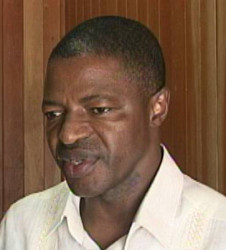A workshop was held two Fridays ago to improve the delivery of technical and vocational education in Guyana.
The event, which was hosted by the Council for Technical and Vocational Education and Training (TVET) and the Inter-national Labour Organisa-tion (ILO) at Cara Lodge, was intended to, among other things, examine the functions of the National Advisory Committee that is tasked with supporting the TVET Council.
Dr. Hassan Ndahi, Senior Specialist in Skills and Employability at the ILO’s Caribbean office, underscored the need to bridge the gap between the quality of education provided and the skills needed to adequately prepare young people to meet the world.

He said the National Advisory Committee would play a critical role in this process by helping with the work of the Council, while ensuring that quality of TVET is effective, and that beneficiaries are equipped with skills that make them efficient, flexible, responsive and competitive.
He noted that the workshop was aimed at outlining the functions of the Committee as well as analysing the overall TVET system and the quality of delivery.
Ndahi said too that it was aimed at examining how improvements to the system could be made, including ensuring a climate that is conducive for skills development.
Giving an overview of the TVET system, Vice-Chairman of the TVET Council Allan Munroe noted that the Council was created to help the labour force meet the changing demands of global competitiveness, with the required knowledge, skills and attitudes that would contribute to increased productivity and economic development.
He said the main objective of the Committee includes advising the ministry of education on the requirements necessary for a comprehensive system of TVET that is suitable to Guyana. The Committee is expected to have between 9 and 15 members who are appointed by the Minister from nominees identified by various stakeholders.
Students of TVET in private and public secondary schools, students and trainees of technical institutions and industrial training centres, craftsmen, technicians and engineers of registered organisations are among the persons who are expected to benefit from the work of the committee.




